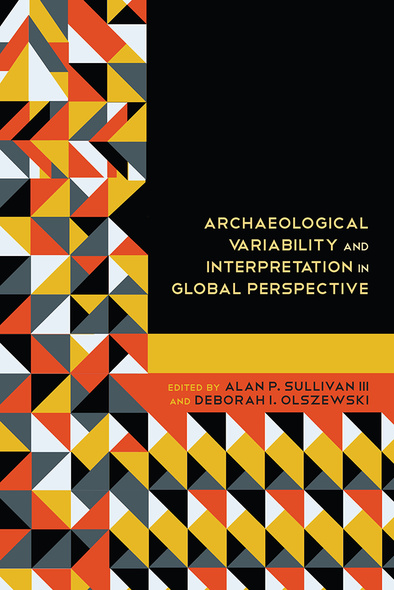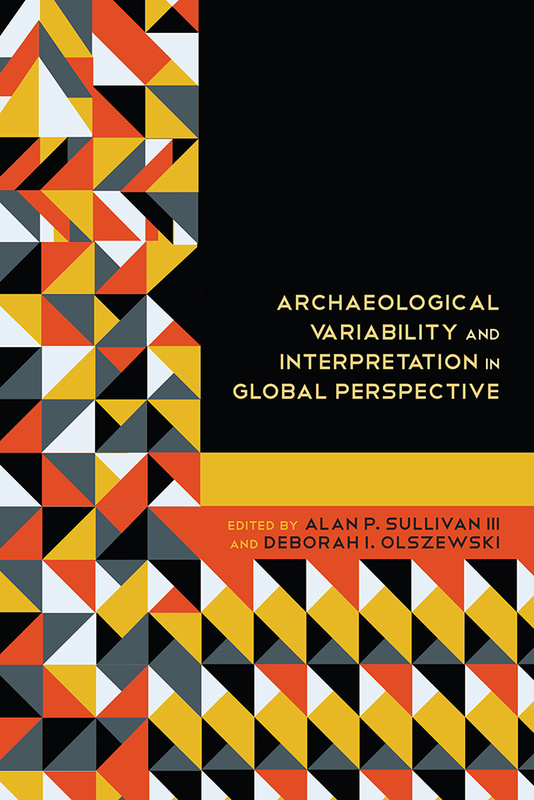
342 pages, 6 x 9
89 black and white photographs, line drawings, maps, and tables
Hardcover
Release Date:01 Dec 2016
ISBN:9781607324935
Archaeological Variability and Interpretation in Global Perspective
Edited by Alan P. Sullivan and Deborah Irene Olszewski
University Press of Colorado
In Archaeological Variability and Interpretation in Global Perspective, contributors illustrate the virtues of various ecological, experimental, statistical, typological, technological, and cognitive/social approaches for understanding the origins, formation histories, and inferential potential of a wide range of archaeological phenomena. As archaeologists worldwide create theoretically inspired and methodologically robust narratives of the cultural past, their research pivots on the principle that determining the origins and histories of archaeological phenomena is essential in understanding their relevance for a variety of anthropological problems.
The chapters explore how the analysis of artifact, assemblage, and site distributions at different spatial and temporal scales provides new insights into how mobility strategies affect lithic assemblage composition, what causes unstable interaction patterns in complex societies, and which factors promote a sense of “place” in landscapes of abandoned structures. In addition, several chapters illustrate how new theoretical approaches and innovative methods promote reinterpretations of the regional significance of historically important archaeological sites such as Myrtos-Pyrgos (Crete, Greece), Aztalan (Wisconsin, USA), Tabun Cave (Israel), and Casas Grandes (Chihuahua, Mexico).
The studies presented in Archaeological Variability and Interpretation in Global Perspective challenge orthodoxy, raise research-worthy controversies, and develop strong inferences about the diverse evolutionary pathways of humankind using theoretical perspectives that consider both new information and preexisting archaeological data.
Contributors: C. Michael Barton, Brian F. Byrd, Gerald Cadogan, Philip G. Chase, Harold L. Dibble, Matthew J. Douglass, Patricia C. Fanning, Lynne Goldstein, Simon J. Holdaway, Kathryn A. Kamp, Sam Lin, Emilia Oddo, Zeljko Rezek, Julien Riel-Salvatore, Gary O. Rollefson, Jeffrey Rosenthal, Barbara J. Roth, Sissel Schroeder, Justin I. Shiner, John C. Whittaker, David R. Wilcox
The chapters explore how the analysis of artifact, assemblage, and site distributions at different spatial and temporal scales provides new insights into how mobility strategies affect lithic assemblage composition, what causes unstable interaction patterns in complex societies, and which factors promote a sense of “place” in landscapes of abandoned structures. In addition, several chapters illustrate how new theoretical approaches and innovative methods promote reinterpretations of the regional significance of historically important archaeological sites such as Myrtos-Pyrgos (Crete, Greece), Aztalan (Wisconsin, USA), Tabun Cave (Israel), and Casas Grandes (Chihuahua, Mexico).
The studies presented in Archaeological Variability and Interpretation in Global Perspective challenge orthodoxy, raise research-worthy controversies, and develop strong inferences about the diverse evolutionary pathways of humankind using theoretical perspectives that consider both new information and preexisting archaeological data.
Contributors: C. Michael Barton, Brian F. Byrd, Gerald Cadogan, Philip G. Chase, Harold L. Dibble, Matthew J. Douglass, Patricia C. Fanning, Lynne Goldstein, Simon J. Holdaway, Kathryn A. Kamp, Sam Lin, Emilia Oddo, Zeljko Rezek, Julien Riel-Salvatore, Gary O. Rollefson, Jeffrey Rosenthal, Barbara J. Roth, Sissel Schroeder, Justin I. Shiner, John C. Whittaker, David R. Wilcox
'[T]he mark of a good book is that it sticks with you—it makes you consider, and perhaps even improve, your own practice. This book has challenged me to think more deeply and broadly about the methods I use and the interpretations I make from the data I collect. For these reasons, I believe the volume is worth reading for any archaeologist who wants to critically engage with how they approach the past.'
—Lisa M. Fontes, Journal of Anthropological Research
Alan P. Sullivan III is professor in the Department of Anthropology at the University of Cincinnati. His research focuses on the development of independent archaeological theory and has been supported by the USDA Forest Service, USDI National Park Service, the Waitt/National Geographic Society, and the C. P. Taft Research Center at the University of Cincinnati.
Deborah Irene Olszewski is lecturer and adjunct professor of anthropology at the University of Pennsylvania. She is author, editor, or coeditor of eight books and her fieldwork has been supported by grants from the National Science Foundation, the Wenner-Gren Foundation, the Leakey Foundation, and the National Geographic Society.




